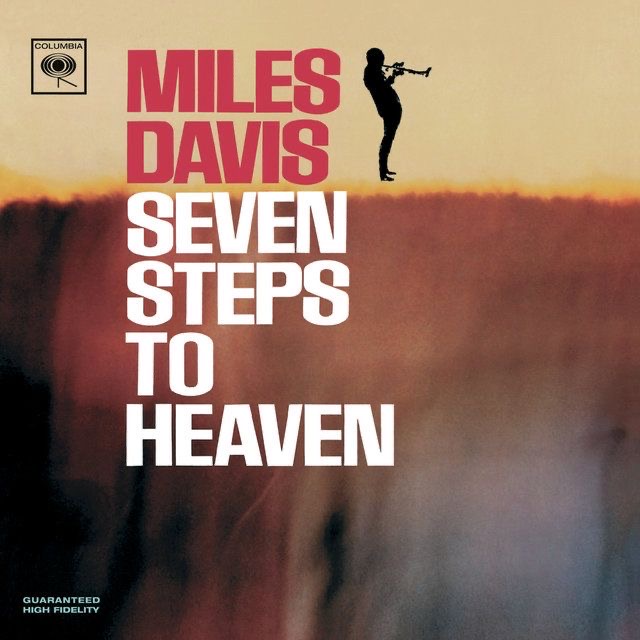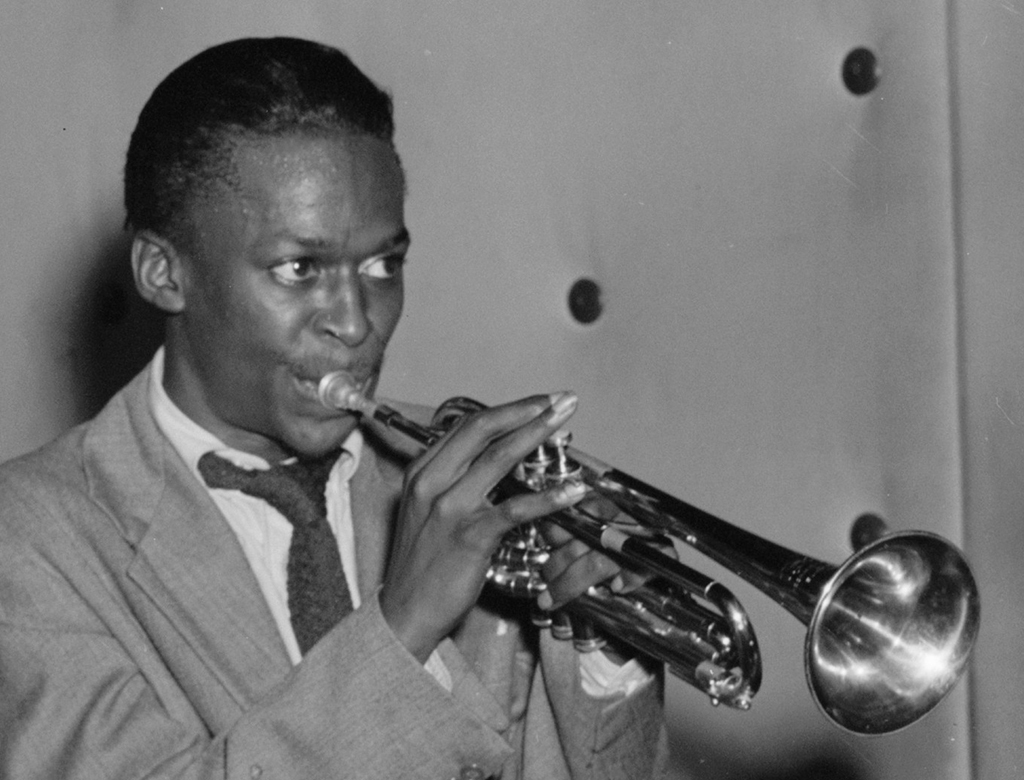Dive into the Power & Passion of ‘Tenor Madness
In the vast panorama of jazz, Sonny Rollins’ “Tenor…
I just finished immersing myself in Miles Davis‘ album “Seven Steps to Heaven,” and the music lingers, igniting a desire to share the experience of this remarkable album. In 1963, Miles Davis released “Seven Steps to Heaven” on the Columbia Records label. The album was the result of two recording sessions held at different studios – the first at Columbia Studios in Hollywood, California, and the second at New York City’s renowned 30th Street Studio a month later. These sessions capture Davis’ group in a state of transition and marked the beginning of his second great quintet. The album serves as a pivotal work that epitomizes Davis’ innate ability to constantly evolve and expand the boundaries of jazz music.

Miles Davis, renowned for his innovative approach to music, handpicked a group of exceptional musicians for “Seven Steps to Heaven.” For the Hollywood recording sessions, Victor Feldman and Frank Butler added their talents on piano and drums. As the band traveled to New York City, promising young musicians Herbie Hancock on piano and Tony Williams on drums replaced them. Along with Ron Carter on bass and George Coleman on tenor saxophone, this lineup marked a turning point in Miles Davis’ career, ushering in a new era of creativity and exploration in jazz.
“Seven Steps to Heaven” represents a transitional period in Miles Davis’ career, blending elements of traditional jazz with new and uncharted rhythms and harmonies. The album seamlessly combines the familiar with the unexpected, opening doors to new possibilities for Davis and his band. It stands as a testament to his unwavering dedication to exploring new musical territories and his innate ability to innovate even while honoring the jazz tradition that was his foundation.

The tracks on “Seven Steps to Heaven” represent a diverse spectrum of styles and emotions, embodying Miles Davis’ unparalleled musical prowess. In “Basin Street Blues,” Davis’ muted trumpet effortlessly complements George Coleman’s saxophone, invoking a soulful warmth that captivates the listener and stirs deep emotions. The title track, “Seven Steps to Heaven,” dazzles with complex harmonies and a tight interplay among the musicians, showcasing their exceptional virtuosity.
My personal favorite, “I Fall in Love Too Easily,” is a delicate ballad in which Davis’ poignant trumpet creates an emotional landscape that lingers long after the final notes have faded. The introspective performance resonates with vulnerability, revealing the tender side of the ensemble’s dynamic range. This track stands as a testament to their ability to navigate the intricate nuances of human emotion through music.

Delving further into the album, “So Near, So Far” unveils a mysterious melody as the haunting trumpet and saxophone lines interlace to form a mesmerizing tapestry. The somber atmosphere conjures a sense of longing, further enriching the album’s emotional depth. In contrast, “Joshua” brims with energy, highlighting syncopated rhythms and masterful improvisation that captivates and engages the listener. Finally, the bonus track on some editions, “Baby, Won’t You Please Come Home,” delivers a playful blues romp, spotlighting spirited solos from the ensemble and further illustrating their remarkable versatility. With each track, “Seven Steps to Heaven” offers a captivating journey through the boundless creativity and raw emotion that defines the essence of jazz.
Upon its release, “Seven Steps to Heaven” resonated with critics and fans alike. Recognizing the album as a new chapter in Davis’ musical journey, it garnered praise for its innovative approach and exceptional musicianship. The album not only captivated audiences of its time, but it also laid the groundwork for Davis’ future explorations in jazz.
Even today, “Seven Steps to Heaven” is regarded as a quintessential work of jazz history with a lasting impact on subsequent generations of musicians. The album’s legacy serves as a testament to Miles Davis’ uncompromising pursuit of new sounds, musical ideas, and expressions. As a crucial stepping stone in the evolution of jazz, the record continues to inspire and influence countless recordings that have followed in its wake. Its significance in the genre is undeniable, and its enduring appeal is a testament to Davis’ innate talent and unwavering dedication to his craft.
I am in awe of the sense of innovation and progress that lingers in the air whenever I think of “Seven Steps to Heaven.” Miles Davis’ masterpiece captures a moment of transition, gifting us with new possibilities and pushing the boundaries of jazz further and further. This album continues to serve as an inspiration, reminding us all of music’s power to transform and highlighting the boundless creativity that lies within us all.